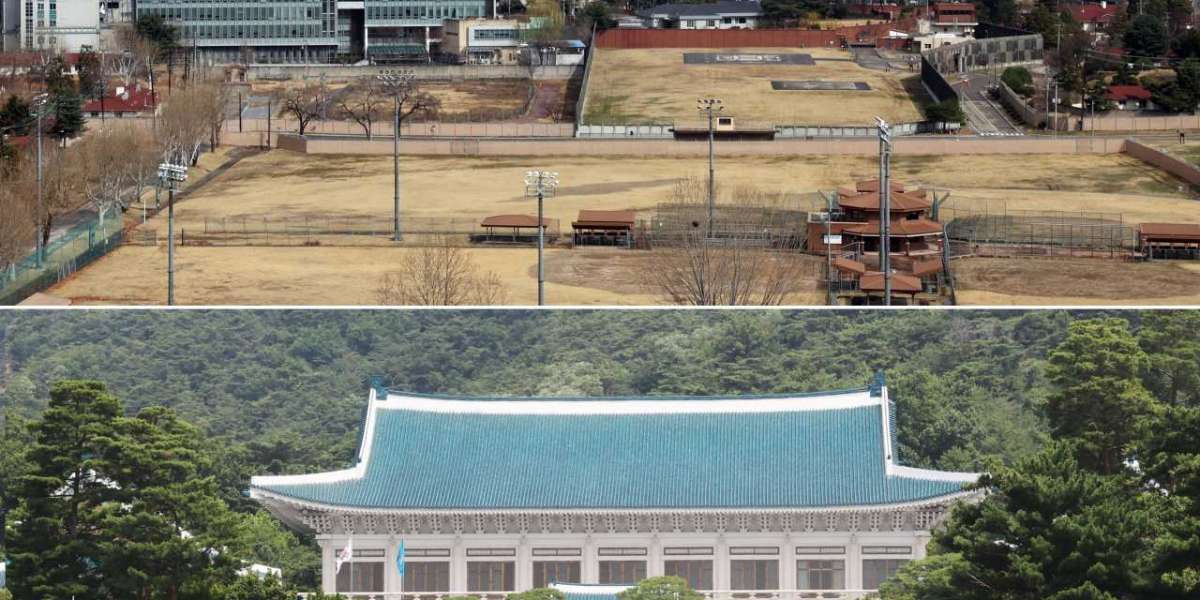The office of incumbent President Moon Jae-in expressed worries on Monday over the proposed relocation of the presidential office, adding to the turmoil surrounding the plans.
Following the National Security Council meeting on Monday, President Moon Jae-in said, "President Moon Jae-in pledged to open the Gwanghwamun era in the previous presidential election, and we do agree on the idea of returning Cheong Wa Dae to the general public." Park Soo-hyun, senior presidential secretary for public communication for Moon, said after the meeting.
It is however impractical to relocate the Defense Ministry, the Joint Chiefs of Staff and other government offices in such a short period of time, especially at a time when security risks are at an all-time high, according to Park. He added that it is only reasonable to proceed with such relocations once the appropriate facilities are in place.
Following his inauguration on May 10, President-elect Yoon Suk-yeol declared that he would establish his presidential office at the Ministry of National Defense compound and that the Joint Chiefs of Staff headquarters and other military facilities would be transferred to other government buildings.
Park pointed out that North Korea has already launched ten missiles this year, and that April has traditionally been the most vital month for South Korea's national security, due to the North's annual military parade and other activities taking place in the country.
As Park pointed out, "they should also consider readjusting the air defense system that is now in place surrounding Cheong Wa Dae."
Yoon's spokeswoman stated earlier in the day that the present presidential office, Cheong Wa Dae, will be transformed into a "cultural and historical destination" for Koreans and will reopen to the public in May.
South Korea's contemporary history of pride and disgrace is etched in this place, which will become a historical cultural space, according to the country's spokesperson Kim Eun-hye, during a news briefing.
Aware of the opposition's concerns about the feasibility and purpose of the relocation, Kim reaffirmed that Yoon's resolve "to move away from an imperial presidency and not govern over other state officials" is reflected in the proposal.
The spokesman listed the different options for the Cheong Wa Dae property, including the possibility of converting it into a place for presidential records, a museum, or an exhibition space, and stated that its worth will be "beyond comprehension" once it is returned to public ownership.
"I once saw an air carrier complex that was cost between 400 and 500 billion won ($329 million and $411 million), yet it was only one-tenth the size of the Cheong Wa Dae compound," Kim said. "It was just one-tenth the size of the Cheong Wa Dae compound."
In order to create a venue for true education for youngsters and a setting that inspires pride among Koreans, we are seeking suggestions on how to modify the Cheong Wa Dae building.
Kim contested the governing Democratic Party of Korea's accusations of the move as being too expensive, claiming that it would cost around 1 trillion won for a complete relocation. Kim also questioned the methodology used to arrive at that amount.
"We've previously stated that it will cost around 4.9 billion won. "We have also stated that moving and rebuilding the Joint Chiefs of Staff facility in the region near Namtaeryeong Station (in southeastern Seoul) will cost around 120 billion won," Kim added.
Kim stated that they had evaluated the budget plan utilizing the state reserve money with the finance and interior ministries, and that the proposal is expected to be presented at the Cabinet meeting on Tuesday.



